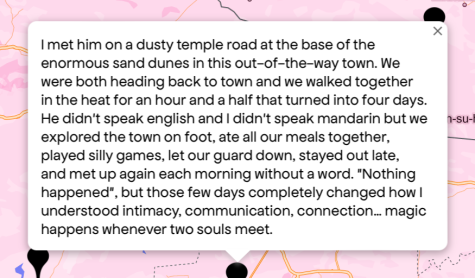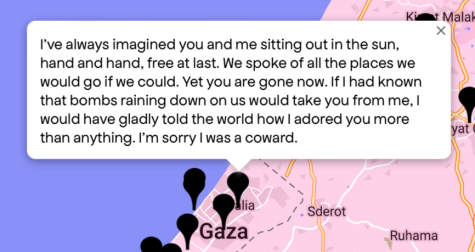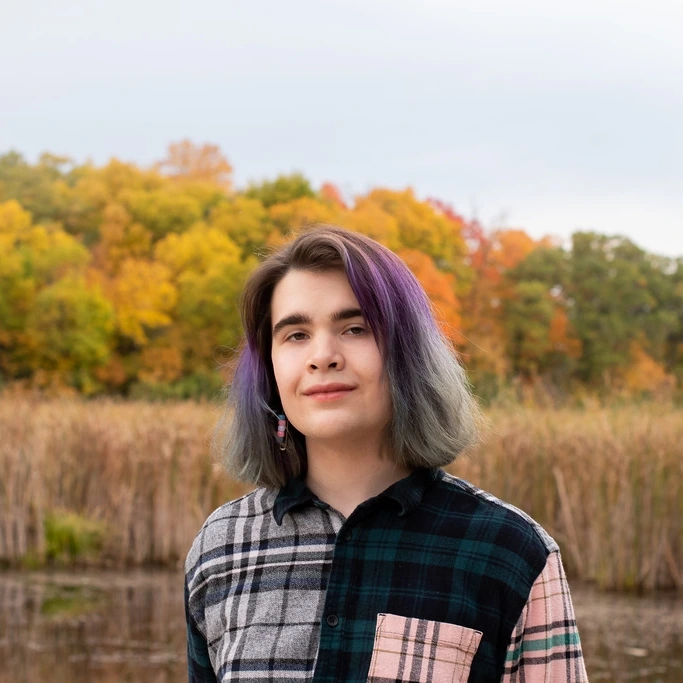Escaping Isolation thru the Poetry of Queerness
May 26, 2023
When I came out as trans, some time in my freshman year, it must have come as no surprise to my friends. Well before I knew I was queer, my friend group was already almost entirely gay and trans, so I knew I had a safe community where I could work things through and be myself.
I’m one of the lucky ones.
The queer experience, especially in adolescence, is quite often one of loneliness and fear. For those of us trapped in homophobic towns, abusive households, or spaces without LGBT+ peers, the least risky choice is often to stay closeted and isolated, exchanging mental wellbeing and euphoria for a semblance of physical safety.
Formal queer community in school is often found in a Gender and Sexuality Alliance. In my first year at Minnetonka High School, GSA was where I would go after school each Wednesday to hear the stories and advice of other LGBT+ students. While never very large, GSA was an early space for structured discussions about gender, family issues, and all our small victories as we grew into ourselves.
While queer spaces like GSA or the Family Tree Clinic, which hosts a weekly get-together for LGBT+ youth in Minneapolis, can provide important education and safe spaces for many students, that’s not of much use to those who can’t access in-person events.
Even here at MHS, with its many openly queer students and the GSA, surviving and finding a community can be a difficult and terrifying experience. I’m friends with many students at MHS who aren’t out to their parents, and who struggle with abuse and transphobia both at home and at school.
Online spaces are a life-saver for closeted LGBT+ children – literally. While the countless subreddits, Discord servers and Twitter communities tend toward toxicity and overpolicing, they can still lead kids to the right resources and conversations. Access to queer creators, history, safety tips and even just basic labels is invaluable for someone just discovering themself for the first time.
One particular online LGBT+ space that stands out among the others is a website called Queering the Map. QTM was created by Montreal-based artist Lucas LaRochelle in 2017. The project, they said, “collaboratively records queer life to preserve our histories and unfolding realities, which continue to be invalidated, contested, and erased.”
On this bright pink world map, anyone can mark a location with a few sentences, creating a unique vignette of queerness in that one spot. “Came out to my mom” in rural Ohio. “Gay fish” off the coast of California. 80,000 entries in 23 languages.
 Some heartwarming, some gut-wrenching, all very, very queer.
Some heartwarming, some gut-wrenching, all very, very queer.

The creation of QTM was motivated by the need for online community, LaRochelle says. “I first encountered other queer people in virtual spaces – encounters that were not available to me in rural Ontario.”
To me, what’s so striking about many of these pins is the poetry of it all. Yes, many are short and sweet (and equally many short and crude), but by exploring the map one stumbles onto much longer posts. Entire stories, sometimes, like a piece of some stranger’s life. An awkward first love. A teary coming out. A mournful cry of pain.
And from each of these stories, one can’t help but gain a sense of camaraderie for that stranger. A connection to gay and trans folks from every corner of the world. The knowledge that we are everywhere, and never truly alone.






























